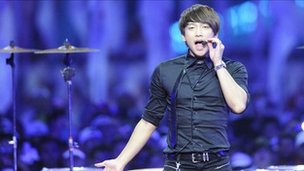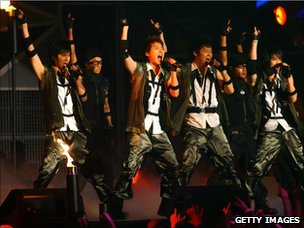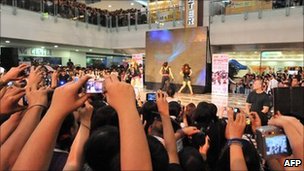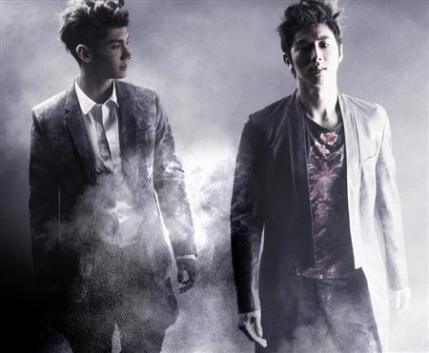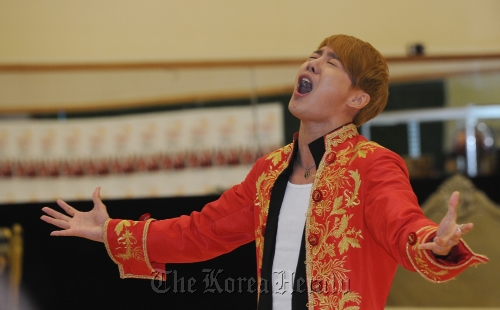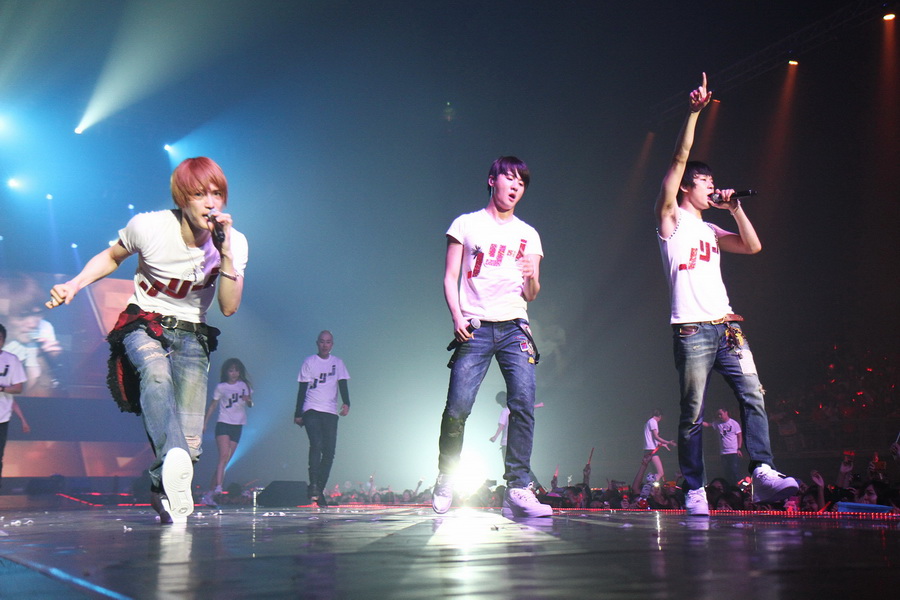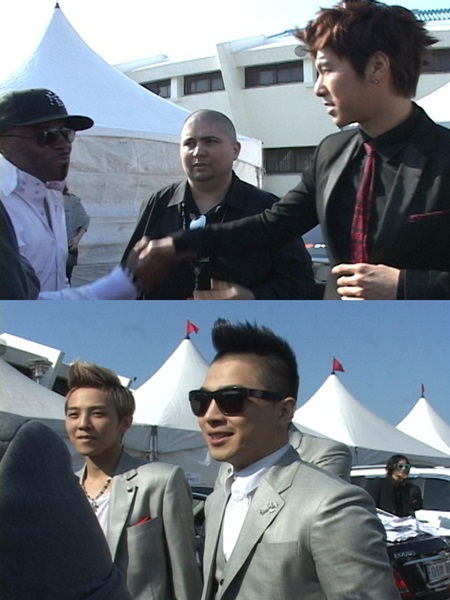[NEWS] K-Pop’s Soft Power
Posted on June 16, 2011 by Cecilia
K-Pop’s Soft Power
The story of South Korea’s musical exports.
By Neil Manticore-Griffin June 2, 2011
This spring, the Hollywood Bowl hosted a big-budget festival “for all generations” featuring a family-friendly parade of torch singers, hip-pop crews, and boy and girl bands. But instead of a shot in the arm for America’s pick-pocketed music industry, it’s a showcase for the boom of cultural exports from what CNN dubs “the Hollywood of the East”: South Korea.
K-Pop–named after (Japanese) J-Pop before it–has attained fashion first status in Thailand, Vietnam, Hong Kong and Singapore. More surprisingly, acts are making inroads into the self-sufficient charts of Japan–and more unpredictably, starting to occupy the imagination of a neo-capitalist China.
K-Pop’s rise began in the ’90s. South Korea had emerged as one of the Tiger Economies via a determined, decades-long drive to build up a competitive hi-tech manufacturing industry (starring Samsung, Hyundai and LG). This triumph of capitalism could only be achieved via a failure of democracy–a series of military republics kept free speech and wages down, as true to their own ideology as their more notorious neighbor. Democracy finally arrived in 1987, and the new rulers attempted to reform, while continuing to rely upon, the country’s chaebol (dynastic family businesses the size of multinational corporations). Likewise, as nearby China outpaced the Tiger Economies, South Korea’s previously isolationist foreign policy shifted to segyehwa–a political term usually translated as “globalization” (but more usefully ambiguous).
Trade became key for Korea to build its regional position, which is why the country’s Presidential Advisory Board on Science and Technology recommended support for “creative content industries.” Reportedly, it was the international success of the film Jurassic Park–equaling “the foreign sales of 1.5 million Hyundai cars”–that sealed the deal.
It was, however, a string of soapy miniseries–often historical, always sentimental epics inhabited by glamorous stars–that would prove the monster hits. Lavishly produced by public broadcasters and sold insultingly cheaply, romantic shows like “Winter Sonata” and “Autumn In My Heart” would root in TV schedules across East Asia, proving hugely popular in China especially. With (Korean) product placement all but running the props department, emotion-ravished audiences came to relate to these neighborly characters, their fashion–and the musical soundtrack.
K-Pop was born in the ’90s for domestic use–an artificial transplant to South Korea, a place where record companies are called “talent agencies” precisely because they train (and maintain) pop star “idols” in a country with no tradition of such–and it fully evolved with the arrival of the “Queen of K-Pop,” BoA. Trained for two years behind closed doors, her career launched in 2000 at the age of 13. At 15, with moderate success back home and a sound that gentrified her genre’s urban influence, she conquered Korea-phobic Japan, the world’s second-largest music market. (Her coaching included both Japanese and Mandarin.) In 2008, having learned English, she became one of the first idols to attempt an American release. The songs were unsurprisingly modeled on what Rolling Stone called “possibly the most influential pop album of the last five years”–Britney Spears’ Blackout. The fact that you haven’t heard of BoA tells you how it went, but her influence in South Korea was considerable.
Today, the songs filling Seoul’s cavernous pastel mega-malls, Noraebang (Karaoke buses) and video game cafes encode emotion in processed vocals and synth tones from wistful and reedy to thunderous and metallic. Incoming boy and girl bands–from SHINee to T-ara, Girls Generation to Super Junior–are perfecting the template.
The genre’s detractors belittle it as a bad American translation, in which context and thus meaning are lost. Undeniably, the taboo-tickling de rigueur in Noughties U.S. pop is clinically excised in K-Pop–made cute not sexy, sentimental not steely–in a regionalizing process designed to appeal to conservative Asian values (i.e., markets).
K-Pop’s supporters reject the notion that translation results in pale copies and simplifications. Instead, they say, it’s cross-pollination. And it’s certainly too early to say whether K-Pop’s growing dislocation of sound will prove fad, phase or another point of departure.
But it works. Via the Internet, K-Pop music videos trade words for body language and score multi-million YouTube views around the world. Talent agencies launch their acts entirely online, offering free content that becomes shared so widely that artists are sometimes known from Bangkok to Tokyo before making a live appearance anywhere.
In the decade since those first televised dramas, the “Korean Wave” (Hallyu) has rewarded the nation with a place in the world’s top 10 cultural exporters. Both government and business are in the mix: official organizations offer support, while the idols routinely produce single-length advertisements, earning more from sponsorships than sales.
But a darker undertow is found in regular court cases brought against monolithic talent agencies by idols who signed so-called “slave contracts” in their teens (current disputes include the biggest of the boy bands, Tohoshinki). Darker still, and under investigation, is the story of Jang Ja-yeon, a popular actress who killed herself in 2009 because (her suicide note says) her management forced her to have sex with 31 prominent businessmen. A survey by the Human Rights Commission found that 60 percent of actresses made similar claims, and public outrage has compelled the government to intervene via an Entertainer Supporting Center.
Meanwhile, the industry’s success has been explosive, with $3.8 billion in sales projected for this year, up from $1.8 billion in 2008. Soaps sell music and music sells tourism–and Korean product placement has led to phenomenal sales jumps.
Hallyu‘s cultural exports, however, are unlikely to ever match Korea’s world-leading electronic industry. Where the money goes may ultimately be less important for our future than whether our cultures communicate. South Korea, a country often invaded and occupied, may be redressing the balance of power in the region via ephemera. But if the region’s rise becomes colored by Korea–a country of Chinese heritage and American patronage–this will surely one day be a story about more than entertainment.
——————————————————————————–
Neil Manticore-Griffin, sometimes known as kicking_k, was a staff writer for the UK’s Plan B magazine before the music industry tanked. He now writes plays, because you can’t download a theater.
Source: In These Times
Shared by: TheJYJFiles
Momma’s Source: TheJYJFiles

